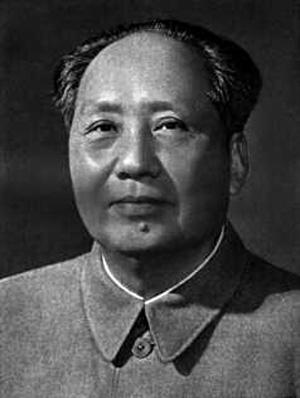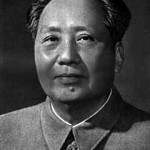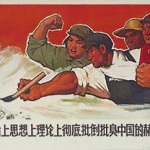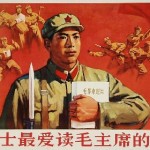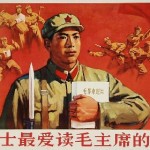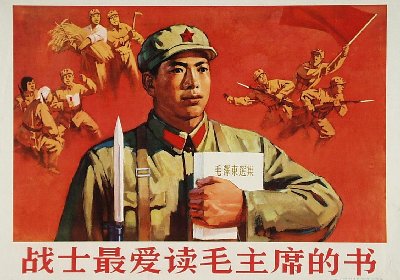By A. Nichols
The Great Proletarian Revolution took place, under Mao Zedong’s rule, around 1966 and ended around 1976. He wanted to establish a more effective bureaucracy for his nation but also to keep a nation plunged in chaos. Mao organized a group of young people whose goal was to spread the idea of socialism around China. This was an economic and social campaign of the Communist Party of China which aimed to use China’s vast population to rapidly transform the country from an agrarian economy into a modern communist society through the process of rapid industrialization and collectivization. It resulted, however, in millions of Chinese dead and came to be a heavy financial cost to China. The Cultural Revolution, instead of creating a better China, left a negative impact on the people and the economy of China.
The focus of my research on this time period is placed on how the treatment of people changed over the political course that was taken during the Cultural Revolution. The Revolution can be described as a time where young Chinese citizens, or Red Guards, united for a democratic society. One main idea of the Revolution was the belief that school should be simpler. The thought was that the more books a person read, the more unintelligent they became. Mao’s goal was to brainwash Chinese society and create Chinese citizens that would grow up to be mindless and uneducated. Chinese youths were encouraged to openly criticize the liberals in the Chinese Communist Party, and the government also began to require that the values of the Cultural Revolution be taught in all schools. Many students were forced into work in the countryside in order to gain the viewpoints and ideals of the hardworking Chinese citizens. Four million college graduates and sixteen million students ended up on farms to perform manual labor during this era. China wasted many talented individuals this way.
In order to be successful, the Communist Party officials had to be good at discovering and separating the reactionary rightists from the revolutionary leftists in the community. The Party strengthened and developed the ranks of leftists, thus displaying a perk to being on the side of the revolution. They then said to concentrate all forces to strike on the handful of ultra-reactionary bourgeois rightists and counter-revolutionary revisionists. The purpose was to expose and criticize their crimes against the Party, against socialism and against Mao Tse-tung’s thought, so as to isolate them to the fullest. During this time, there was no interpersonal trust between citizens. Family members would even turn in one another to authorities over a comment that may have seemed to have a rightist viewpoint. These Anti-Rightist campaigns were instigated by Chairman Mao Zedong and saw to the political persecution of an estimated 550,000 Chinese citizens.
Gangs of hundreds and sometimes thousands of citizens (students) began to multiply around China from so many disagreements around the nation and often led to violent encounters. In the city of Changsha, one gang that had failed to dislodge their rivals from within a building returned with anti-aircraft missiles.
One former Red Guard described Changsha at the time as,
“… absolutely terrifying. Bullets whistled in the streets, and the roar of a motorcycle or the wail of a siren meant violence and tragedy. There was a 9 p.m. curfew and no one wanted to go out during the day unless he had to; there were many reports of the deaths of innocent vegetable buyers by stray bullets” (Hore).
Unfortunately, while they did move their economy forward slightly through the course of Revolution, China’s government did not manage to escape the corruption that has plagued their citizens since the Communist Party began. Until citizens are given full freedom and the ability to comfortably speak out against the government without being interfered with, they will continue to have internal problems and issues with living satisfaction from the people.

